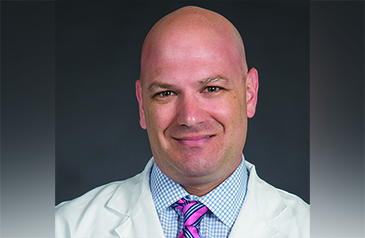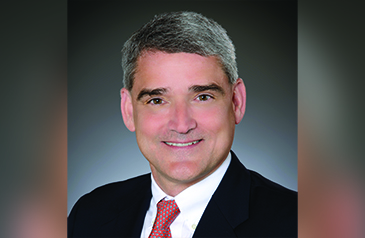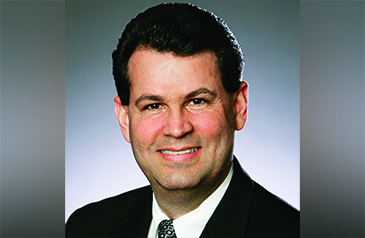Baylor University Medical Center at Dallas Presents Research at ASH 64th Annual Meeting & Exposition
The American Society of Hematology (ASH) 64th Annual Meeting & Exposition 2022 on Dec. 10-13 in New Orleans, Louisiana, attracts clinicians, practitioners, educators, teachers, researchers, trainees and students. ASH is the world’s leading provider of hematology education, offering a wide array of educational opportunities to clinicians and scientists.
Researchers from Baylor University Medical Center at Dallas, part of Baylor Scott & White Health, will be involved in this year's event by participating in scheduled talks and presentations. Learn more about Baylor University Medical Center’s comprehensive cancer program and cellular therapies at CellularTherapies.com/Physicians.
A list of Baylor Scott & White presentations can be found below. Additional details about the meeting can be found on the event website.
Featured Presentations and Sessions Highlighting Hematology Research
Elranatamab, a BCMA-Targeted T-Cell Engaging Bispecific Antibody, Induces Durable Clinical and Molecular Responses for Patients with Relapsed or Refractory Multiple Myeloma
-
Research Collaborator: Moshe Yair Levy, MD, Medical Director, Hematologic Malignancy Research at Baylor University Medical Center
-
Time: 12:15 PM CST
-
Abstract/Study Purpose: Multiple myeloma (MM) is a plasma cell dyscrasia characterized by expression of B-cell maturation antigen (BCMA). Elranatamab (PF-06863135), a bispecific antibody that targets BCMA and CD3 on T-cells, activates and redirects the T-cell mediated immune response against MM. This clinical trial, MagnetisMM-1 (NCT03269136), is the ongoing Phase 1 first-in-human study evaluating the safety, pharmacokinetics (PK), pharmacodynamics, and efficacy of elranatamab for patients (pts) with relapsed or refractory MM.
-
For More Information: Click Here
A First-in-Human Phase 1 Study of Abbv-319, an Antibody-Drug Conjugate Composed of a CD19 Antibody Linked to a Potent Proprietary Glucocorticoid Receptor Modulator, in Patients with Relapsed or Refractory B-Cell Malignancies
-
Speaker: Moshe Yair Levy, MD, Medical Director, Hematologic Malignancy Research at Baylor University Medical Center
-
Time: 5:30 PM-7:30 PM CST
-
Abstract/Study Purpose: Recently, new estimating GFR equations without race were proposed and rapidly implemented across the U.S. (Inker NEJM 2021 CKD-EPI AS). Given the importance of kidney function assessment in cirrhosis/dual organ transplantation, we examined the performance of novel equations as compared to protocol-measured GFR (reference standard) in patients listed for liver transplantation. In addition, we compared performance to equation developed in cirrhosis population (Asrani Hepatology 2020/2021 GRAIL).
-
For More Information: Click Here
-

A Phase 2, Single-Arm, Dose-Escalation Study of Asciminib Monotherapy in Patients (Pts) with Chronic Myeloid Leukemia in Chronic Phase (CML-CP) Previously Treated with 1 Prior Tyrosine Kinase Inhibitor (TKI)
-
Speaker: Moshe Yair Levy, MD, Medical Director, Hematologic Malignancy Research at Baylor University Medical Center
-
Time: 6 PM-8 PM CST
-
Abstract/Study Purpose: The discovery of adenosine triphosphate (ATP)–competitive TKIs has extended life expectancy in CML; despite these advances, 28% to 40% of newly diagnosed pts with CML-CP discontinue treatment by 5 years, prompting a switch to second-line (2L) therapy. Discontinuation rates increase in 2L; up to 86% of pts discontinue therapy, with 20% to 30% discontinuing 2L therapy due to disease progression. Dose-escalation studies show that some pts experiencing resistance to therapy can achieve responses with higher doses of their TKI, while use of another second-generation (2G) TKI has shown limited clinical benefit in pts experiencing resistance to a 2G TKI. Asciminib is the 1st BCR::ABL1 inhibitor that Specifically Targets the ABL Myristoyl Pocket (STAMP), allowing asciminib to have activity against most BCR::ABL1 mutations that impart resistance to ATP-competitive TKIs. Asciminib was 1st approved in the United States for pts with CML-CP after ≥2 TKIs at 80 mg once daily (QD) and 40 mg twice daily (BID) and CML-CP with the T315I mutation at 200 mg BID.
-
For More Information: Click Here

Mosunetuzumab Monotherapy Continues to Demonstrate Promising Efficacy and Durable Complete Responses in Elderly/Unfit Patients with Previously Untreated Diffuse Large B-Cell Lymphoma
-
Speaker: Houston Holmes, MD, oncologist on the medical staff at Baylor University Medical Center
-
Time: 11:45 AM
-
Abstract/Study Purpose: Elderly/unfit patients (pts) with diffuse large B-cell lymphoma (DLBCL) who are unable to tolerate standard first-line (1L) chemoimmunotherapy (CIT) due to age or pre-existing comorbidities, often receive no treatment, reduced-dose R-CHOP, or therapies such as R-CVP or R-bendamustine. Less toxic, efficacious alternatives to full-dose CIT are needed. Mosunetuzumab (Mosun) is a CD20xCD3 T-cell engaging bispecific monoclonal antibody that redirects T cells to eliminate malignant B cells. Mosun monotherapy has shown durable complete responses in pts with relapsed/refractory DLBCL in an ongoing Phase I study (Budde et al. JCO 2022). Early data from a Phase I/II, multicenter study (NCT03677154) in elderly/unfit pts with previously untreated DLBCL, showed promising efficacy with durable responses and manageable safety with 1L Mosun monotherapy (Olszewski et al. EHA 2021). Here, we report updated efficacy and safety outcomes with at least 1 year of follow-up after the end of treatment (EOT).
-
For More Information: Click Here

A First-in-Human Phase 1, Multicenter, Open-Label Study of CB-010, a Next-Generation CRISPR-Edited Allogeneic Anti-CD19 CAR-T Cell Therapy with a PD-1 Knockout, in Patients with Relapsed/Refractory B Cell Non-Hodgkin Lymphoma (ANTLER Study)
-
Speaker: Houston Holmes, MD, oncologist on the medical staff at Baylor University Medical Center
-
Time: 6 PM-8 PM
Abstract/Study Purpose: Autologous CAR-T cell therapies have shown significant benefit in the treatment of adults with relapsed/refractory B cell non-Hodgkin lymphoma (r/r B-NHL). However, these CAR-T cell therapies have inherent challenges including functional deficiencies in the patient’s T cells that could yield an inconsistent or impaired product. In addition, the extended time and complexity in manufacturing the product can limit patient access and potentially require bridging therapy. CB-010 is an allogeneic, off-the-shelf anti-CD19 CAR-T cell therapy derived from healthy donor T cells; it is the lead program in Caribou’s allogeneic CAR-T cell therapy platform. Patients (pts) receiving CB-010 do not require leukapheresis or bridging therapy. A next-generation CRISPR-Cas9 genome-editing technology developed at Caribou, which uses Cas9 and CRISPR hybrid RNA-DNA (chRDNA) guides to significantly reduce off-target editing, was implemented to generate 3 genome edits in the manufacture of CB-010: (i) knockout of the TRAC gene to eliminate TCR expression to reduce the risk of graft-versus-host disease (GvHD), (ii)site-specific insertion of a CD19-specific CAR into the TRAC locus, and (iii) knockout of the gene encoding PD-1, designed to limit premature CAR-T cell exhaustion and enhance antitumor activity. Statistically significant preclinical survival benefit across B-NHL subtypes and longer-duration efficacy in vivo compared to similar CAR-T cells without a PD-1 knockout support the clinical evaluation of CB-010.
-
For More Session Information: Click Here

PLX-R18 (Avoplacel), a Placental Expanded Mesenchymal-like Stromal Cell Therapy Shows Favorable Safety and Appears to Improve Incomplete Hematopoietic Recovery after Hematopoietic Cell Transplantation (HCT)
-
Speaker: Luis Pineiro, MD, Medical Director, Blood and Marrow Transplantation, Baylor University Medical Center
-
Time: 6 PM-8 PM
-
Abstract/Study Purpose: Persistent cytopenia in the post-HCT setting remains a challenge in some recipients despite good engraftment of donor cells. PLX-R18 is a placental-derived mesenchymal-like cell product, expanded ex vivo in a 3-dimentional environment according to Good Manufacturing Practices. PLX-R18 cells secrete a large array of hematopoietic factors including stem cell factor (SCF), granulocyte-macrophage colony-stimulating factor (GM-CSF), granulocyte colony-stimulating factor (G-CSF), interleukin-6 and interleukin-11, which promote regeneration, maturation, and differentiation of hematopoietic cells in bone marrow and stimulate their migration to peripheral blood. Reported herein are the final encouraging safety and efficacy results from a phase 1 study (NCT03002519).
-
For More Information: Click Here
-